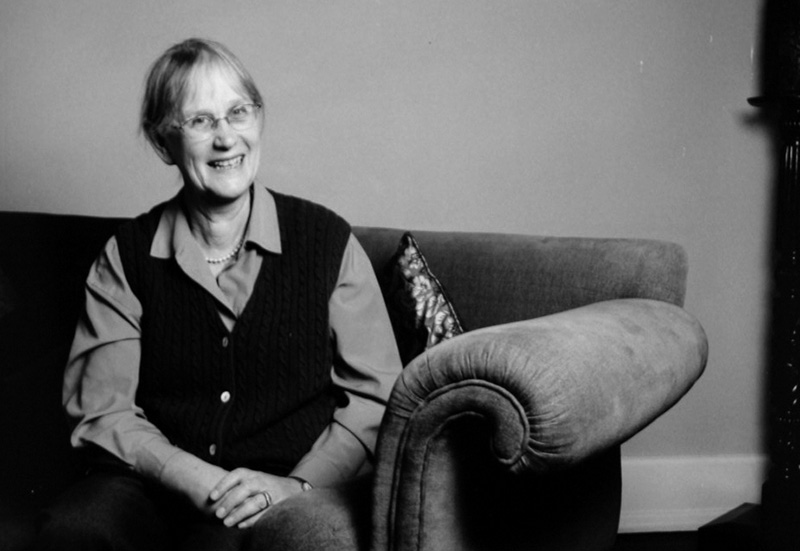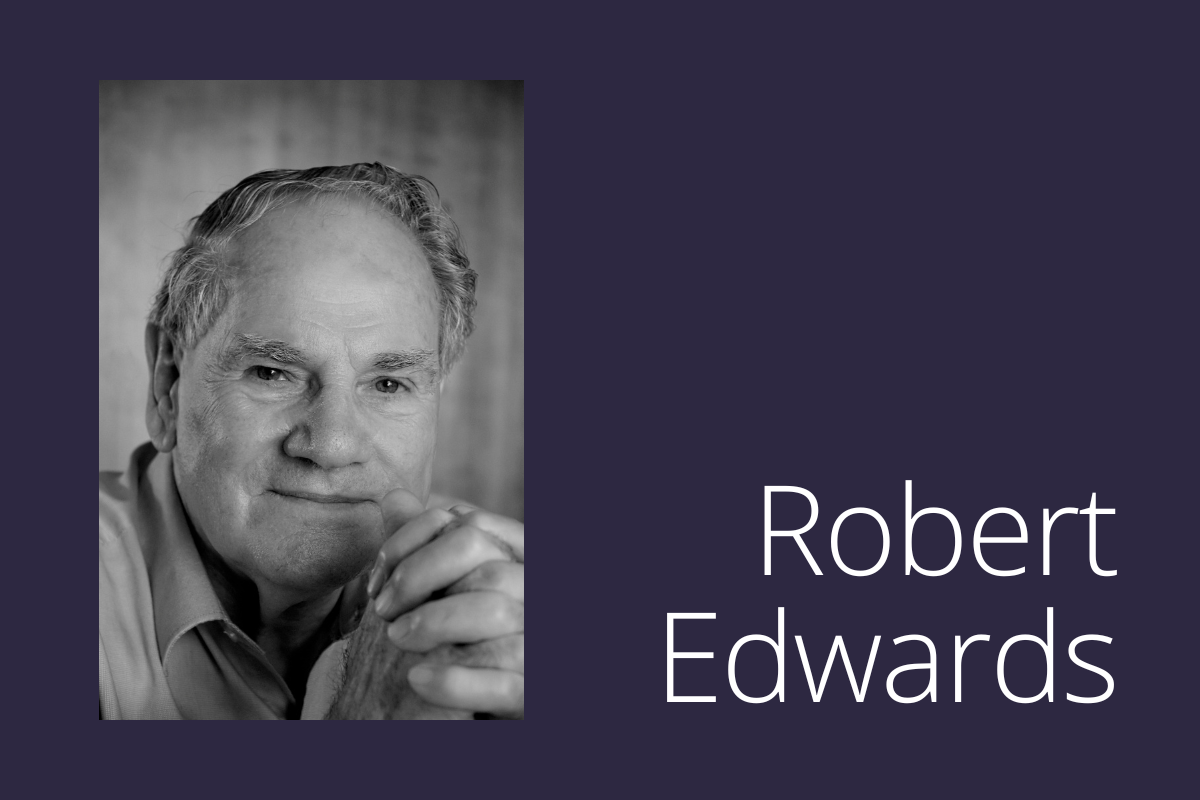
Elizabeth Jeffreys, FAHA (since 1993), an outstanding Byzantinist, died at the age of 82 on 12 September 2023 following complications after a stroke in Oxford where she had been Bywater and Sotheby Professor of Byzantine and Modern Greek Language and Literature and Fellow of Exeter College 1996-2006 (emerita in both cases since 2006). Previously she had lived in Sydney from 1976 where her husband Michael (also FAHA since 1993) had been the foundation Sir Nicholas Laurantus Professor of Modern Greek since 1983 after earlier being appointed as lecturer in 1976.
Elizabeth and Michael met while watching the Australian cricket team trounce Cambridge University in 1960, (with their fellow first-year Classics student and future England captain, Michael Brearley, top scoring for Cambridge in both innings). They married in 1965 and have remained very much a team throughout their careers with about twenty publications authored jointly but with arguably all their considerably more than one hundred publications being deeply influenced by each of them.
Although Elizabeth did teach frequently at Sydney, her only academic appointments in Australia were as research fellowships (of which there were several, at ANU, Melbourne, Macquarie and Sydney at different stages), so her appointment as Oxford professor was remarkably her first and only ever official academic teaching position.
Elizabeth’s university life began with a Classics degree at Girton College, Cambridge, (1959-62) followed by a BLitt at St Anne’s College, Oxford (1963-65), where she first moved from Classics to mainly mediaeval French and Greek with a thesis on the garden-castle theme in fourteenth-century romances. As she herself points out: “I was one of the last people who didn’t do a doctorate. Oxford had an attitude that, ‘Oh, what do you want a Ph.D. for? That’s a silly sort of mechanical degree’” (Dumbarton Oaks interview, 29 July 2008). After four years teaching at a grammar school she became a senior resident fellow at the Warburg Institute, University of London (1969–72), during which time she became very much a Byzantine specialist. During this period Michael also moved beyond just school-teaching Classics to Byzantine research by undertaking a part-time London PhD (awarded in 1972) on “Studies on the Language and Style of the Mediaeval Greek Chronicle of the Morea”, and the two published their first joint article on “Imberios and Margarona: the Manuscripts, Sources and Edition of a Byzantine Romance” (Byzantion 1971). That led to their each being awarded one-year fellowships at Harvard’s prestigious Dumbarton Oaks Center for Byzantine Studies in Washington D.C. (held consecutively, 1972-74), which brought them in contact with two giants of Byzantine scholarship, Ihor Ševčenko and Cyril Mango, both of whose valuable influence they acknowledge. It was also at Dumbarton Oaks that their daughter Katharine was born, and where Michael produced his fundamental and arguably most influential article, “The Nature and Origins of the Political Verse” in Dumbarton Oaks Papers (1974) while Elizabeth’s initial work there on an edition of the War of Troy helped introduce her to John Malalas Chronographia that later was to dominate her early life in Sydney. That was followed by two-year Research Fellowships for both of them (1974-76) at the University of Ioannina, where they became fluent in Modern Greek.
The move to Australia came in 1976 and in 1977 Elizabeth made contact with another former Dumbarton Oaks fellow, Ann Moffatt at ANU, and a future Dumbarton Oaks fellow, Roger Scott in Melbourne, who had been their fellow Classics student at Cambridge, and the three began investigating the possibility of creating a Byzantine group in Australia. In 1978 Elizabeth was awarded a visiting fellowship at the Humanities Research Centre at ANU where she together with Ann Moffatt and Michael convened the first Australian Byzantine Studies conference at the Humanities Research Centre, attended by about eighty participants which was remarkable given that no one in Australia held a formal appointment in anything Byzantine. Happily the Humanities Research Centre invited Ihor Ševčenko as a conference visitor who not only participated vigorously but also urged the formation of an Australian national committee, duly supported as Vice President the Australian application to become a member of the Association Internationale des Études Byzantines, and successfully encouraged the HRC to underwrite publication of the conference. So the Australian Association for Byzantine Studies was duly formed with Ann as president, Elizabeth as secretary and Roger as treasurer, and the series Byzantina Australiensia was established.
The Australian (now Australasian) Association for Byzantine Studies continues to hold biennial meetings while Byzantina Australiensia has reached volume 27, with authors from many parts of the world but with a large majority being Australian. Elizabeth’s initiative has certainly paid off. But for an association with no funds of its own, each volume (volume 1 apart) required desktop publishing, printed at ANU by a special arrangement and then ferried from Canberra to Sydney in the Jeffreys little green hatchback to be stored in their Sydney house or Michael’s office. Michael handled the invoicing but Elizabeth then managed the distribution of the volumes across the world, packing each volume and lugging package after package to the local post office for about fifteen years and there going through the time-consuming process of actually posting each package, not exactly work that embellishes a CV or prepares a candidate to take on an Oxford chair! But Elizabeth chose to provide her time and labour to ensure that the Byzantine Association that she had helped create for Australia not merely survived but flourished. (With production costs absorbed in this way Byzantina Australiensia volumes remained inexpensive and so sold well across the world). For this Elizabeth could not be replaced after taking up her Oxford chair, and Byzantina Australiensia is now handled by Brill at vastly increased prices, but AABS itself retains a healthy bank balance from the sale of books distributed in this way through Elizabeth’s generosity. AABS’ debt to both Jeffreys is enormous.
Elizabeth also set about creating a Byzantine Greek reading group in Sydney. Partly through the influence of Brian Croke (having just returned to Sydney from a Dumbarton Oaks junior Fellowship with an Oxford DPhil) the text chosen to be read and translated was book 18 of the sixth-century Chronographia by John Malalas. Remarkably Roger Scott at Melbourne University had a little earlier also translated exactly the same work to provide reading material for one of his courses, so rival translations were created almost simultaneously in Australia of this work that for fourteen centuries had escaped translation into any modern language. Rather than argue priority, Elizabeth and Roger quickly created a team from Melbourne, Sydney, Canberra and eventually Cambridge (courtesy of a University of Melbourne grant) to tackle the entire chronicle. Sections to translate were allocated to separate members who then met twice a year at the Jeffreys’ house in Sydney for a weekend of intensive study, one group in the dining room and the other in the sitting room, both enjoying the Jeffreys’ hospitality and generosity. The outcomes from these intense but jolly affairs were then worked on by Elizabeth and Roger to produce a draft translation of the defective single Oxford manuscript of Malalas. But it was the very considerable additional work mainly by both Jeffreys in collecting testimonia and citations in later chronicles and other literature that gave real value to the work, turning our English translation into a far more reliable witness to the content of the original than what is contained in the sole surviving but defective Oxford Greek manuscript. Happily the project to translate the chronicle gained an initial substantial publication grant from the University of Melbourne, and then six ARGC (Australian Research Grants Committee) awards across seven years (1982-85, 1987-89) to assist both with the translation meetings and then analysis of the whole work that led to the publication of two volumes, The Chronicle of John Malalas, A Translation (Melbourne 1986) and Studies in John Malalas (Sydney 1990), with Elizabeth being a main author and editor of both. These received numerous favourable reviews in various languages, acknowledging that what has become known as the Australian Malalas was more akin to an edition than just a translation, providing a far better indication of the original content than the defective sole manuscript, which in turn helped earn an international reputation for Australian Byzantine Studies.
Across her remaining time in Sydney Elizabeth held three part-time research fellowships (1987-95) from Melbourne, Macquarie and Sydney universities to work on twelfth-century Byzantine texts and early Modern Greek material, resulting in various publications including most notably in 1996 two very different ones, the editio princeps of a fourteenth-century Greek verse romance, The War of Troy (with M. Papathomopoulos), and The Age of the ΔΡΟΜΩΝ: the Byzantine Navy ca 500-1204 with J.H. Pryor. But she also found time in 1996 somehow to co-edit with several others ΦΙΛΕΛΛΗΝ: Studies in Honour of Robert Browning (Michael’s doctoral supervisor), and The Sixth Century, End or Beginning? with Pauline Allen (Brisbane 1996), as well as edit Parergon, the journal of the Australian and New Zealand Association for Medieval and Renaissance Studies, for the first eight volumes of its new and more professionally produced series (1983-1990). Likewise she instigated and edited the first three volumes (1993-1995) of the corresponding Australian and New Zealand journal Modern Greek Studies, again offering her time and skill to help make improvements by taking on all this editing rather than thinking of her own career, though still maintaining her own remarkable record of publication with another dozen articles plus about 75 entries in The Oxford Dictionary of Byzantium, ed. A. Kazhdan (Oxford 1991).
Elizabeth left Australia to take up the Oxford chair in 1996 where her research publications continued at an impressive level, perhaps most notably with an edition and translation of Digenis Akritis: The Grottaferrata and Escorial Versions (Cambridge 1998) and her translation with introduction and notes of Four Byzantine Novels (Liverpool 2012) which also initiated the series “Translated Texts for Byzantinists” (for which she remained one of the general editors), and her joint editio princeps with Michael of Iacobi Monachi Epistulae, Corpus Christianorum Series Graeca 68 (2009) in addition to a further string of articles. But her influence was perhaps even greater in her silent contribution. Elizabeth became aware that Oxford’s Byzantine postgraduates, though excellent, sometimes had weaknesses or gaps arising from their very varied backgrounds that were in need of remedy. In her typical fashion she often provided the remedy herself, especially in bringing Greek language skills up to speed, as well as making other arrangements where appropriate and doing this quietly without fanfare, ensuring a stronger postgraduate cohort. She also continued to take on those tasks that bring little personal reward but help strengthen the discipline. Most notably here was her editing (after retirement) of The Oxford Handbook of Byzantine Studies (Oxford 2008) “a magnificent work which will be an invaluable help to all students of Byzantium.” (as the Bryn Mawr classical reviewer put it), with some 70 separate contributors, so editing was a massive task. She also edited the three volumes of the Proceedings of the 21st International Congress of Byzantine Studies (Aldershot 2006), again a massive task, and Byzantine Style, Civilization and Religion: In Honour of Sir Steven Runciman (Cambridge 2006). It was also under her leadership that Oxford Studies in Byzantium were established with Elizabeth remaining as chair of its editorial board; beginning in 2005 with Catherine Holmes’ Basil II and the Governance of Empire (976-1025). Oxford Studies in Byzantium has now published over thirty titles, so strengthening considerably Oxford’s status in Byzantine Studies. Elizabeth’s very considerable editorial work has helped change Oxford’s Byzantine culture importantly and significantly in her own quiet way while she still managed to maintain her own remarkable research output.
What this draws attention to is that although Elizabeth’s personal contribution to Byzantine scholarship has been quite outstanding across a range of fields, she has also somehow devoted so much of her time and energy to taking on and completing tasks that she felt important, or simply in her view needed to be done even where these were of little or no benefit to her personally, and this has characterised so much of her life, both in Sydney and in Oxford. But for all her considerable achievements, what so many of us will miss is rather her kindness, her helpfulness, her generosity, her enjoyable company, her wisdom, in short her friendship. She is sorely missed.
A complete bibliography of Elizabeth’s and Michael’s works to 2011, compiled by Ann Moffatt, is attached to Ann’s excellent appraisal of them, “Michael and Elizabeth Jeffreys” in G. Nathan (ed.), Basileia: Essays on Imperium and Culture in honour of E.M. and M.J. Jeffreys (Brisbane 2011) 1-13, from which we have borrowed extensively in the above. For the period from 2011, consult the annual Bulletin of British Byzantine Studies.
Associate Professor Roger Scott FAHA



